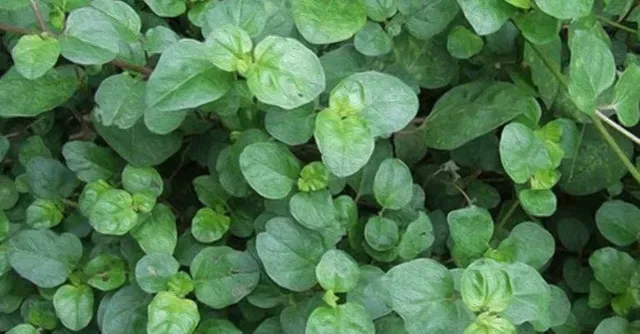4 Health Benefits Of Punarnava Leave

Punarnava has an important place among therapeutic plants in ayurveda. This herb has anti-inflammatory, antibacterial, and adaptogenic properties. It protects your liver and heart and treats epilepsy, eye diseases, and kidney disorders. It also eases pain and helps manage high blood sugar levels.
Punarnava or hogweed has an important place among therapeutic herbs prescribed in ayurveda. In fact, the rejuvenating powers of this herb are so famous that its name can be literally translated into “that which renews.” Punarnava plants come in white and red varieties, of which the white variety (Boerhavia diffusa) is considered more beneficial and used more extensively in herbal medicine.1 The leaves and roots of this trailing herb are traditionally used for treating a range of health problems from abdominal pain and inflammation to heart conditions and jaundice. Let’s take a closer look at Punarnava Or Hogweed Health Benefits
Eases respiratory problems
Fights inflammation
Protects the liver
Relieves painhow this herb can help you.
Fights Respiratory Problems
Thanks to its anti-inflammatory and antibacterial properties, punarnava can fight and ease respiratory ailments. It can expel phlegm, soothe the respiratory airway, and protect against inflammation of the mucous membrane.
Traditional healers use punarnava as an expectorant and for clearing nasal congestion. It can even help tackle asthma – a decoction of the leaves of the Malabar nut plant and punarnava is combined with black pepper and ginger juice and customarily used to treat the condition. Animal studies confirm its ability to relax the airway and curb spasms.Counters Stress
Ayurveda categorizes punarnava as a rasayana that can flush out toxins, balance doshas (tridoshahara), and rejuvenate the body. It also optimizes the immune system function.
Punarnava has potential as an adaptogen which can help you fight stress. In one study, when mice were forced to swim in a limited space, they became immobile after a while. This was a behavioral sign of a mental state resembling depression. But when they were given an extract of the roots of punarnava, they were able to tolerate the stress better and swim longer. The extract also combated biochemical indicators of stress such as increased blood glucose and cortisol.Fights Inflammation
Inflammation is a normal immune response to infection or injury and plays an important part in healing. However, it is a double-edged sword. If your body is constantly in a fight mode, it can lead to chronic inflammation which is linked to a range of diseases such as coronary heart disease, rheumatoid arthritis, diabetes, and asthma. Punarnava can help counter this. An enzyme known as secretory phospholipase A2 (sPLA2) plays a vital part in producing inflammatory mediators in chronic inflammatory disorders. Research shows that punarnava can inhibit sPLA2 and function as an anti-inflammatory agent.Relieves Pain
Traditional healers use a decoction of punarnava leaves for treating inflammation and pain. And this has been backed up by scientific research too. One animal study found that it reduced abdominal writhing caused by acetic acid by half and was also significantly effective at tackling pain caused by exposure to heat. The exact mechanism through which punarnava worked was not clear. However, the researchers suggested that it has an impact on our endogenous opioid system which consists of neurons that produce opioids in your body and naturally relieve pain.ebp)
Upvote this for me please? https://steemit.com/christianity/@bible.com/verse-of-the-day-hebrews-4-16-nlt